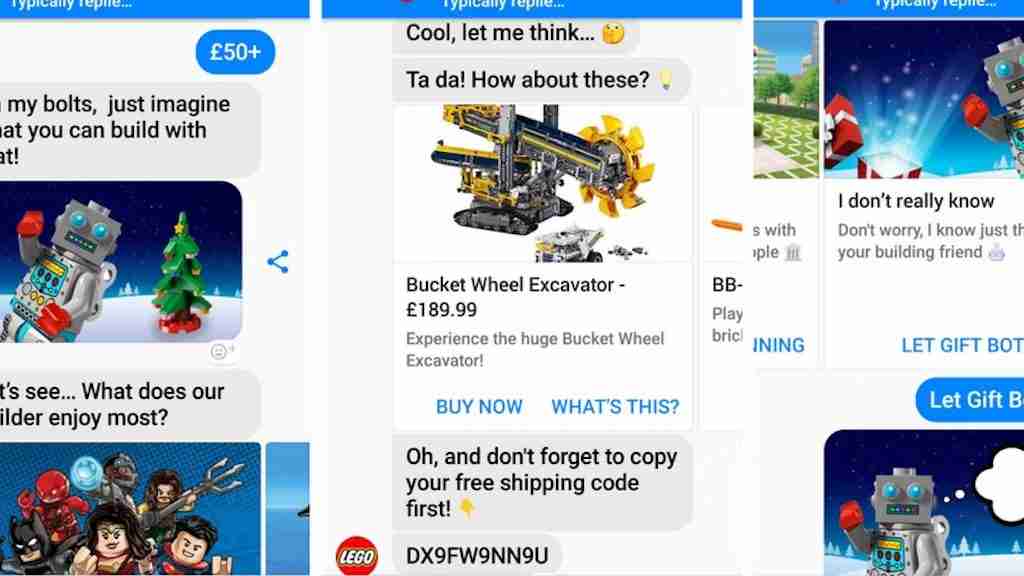As one of the fastest-growing industries, global e-commerce sales are expected to reach $6.5 trillion by 2023. [1]
However, excessive growth rates will be accompanied by additional and more complex challenges.
For example, understanding and responding to trends in a timely manner, communicating with customers and suppliers in a more efficient and timely manner, making marketing strategies and execution easier and more effective, meeting rising customer expectations, increasing sales and reducing inventory levels, etc.
The emerging AI technologies have already been adopted in the E-Commerce industry, with typical applications like personalized recommendations, consumer behavior analysis, smart logistics and so on. Today, the Large Language Models (LLMs) such as the GPT series (now upgraded to GPT-4) which is from OpenAI, is becoming the new enabler to advance the future of the E-Commerce industry in the upcoming years.
Therefore, this article will discuss how GPT-4 impacts the E-Commerce Industry in the following areas: trending and production, customer engagement, marketing, and inventory management, with both benefits and challenges.
1. Trending and Producing
Benefits:
The advantages of trends and production for E-Commerce are obvious.
Thanks to the ability and vast source of LLMs, ChatGPT is able to generate ideas such as the trend, as well as popular and sought-after items.
As Oleksandra Baukh said in the article “How to use ChatGPT for Fashion Product Development”, “While it (ChatGPT) cannot predict the future, it can provide the most recent fashion trends from the world’s leading fashion houses and runways.”[2]
Not to mention product creation. People can generate ideas for inspiration and help to design products, and even create an approximate budget.
For instance, you can use ChatGPT to unlock the target audience by exploring demographics and analyzing product reviews to gain valuable insights that can help you to make or find best-selling products.
In addition, Baukh used ChatGPT to check the price of the fabric and the cost of labor.
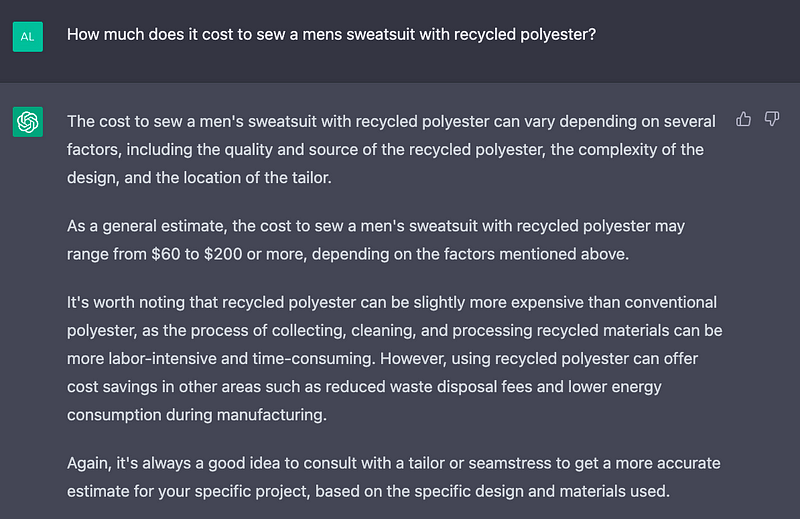
As a tool, it’s a powerful one. On an individual level, ChatGPT can make us more efficient by saving research time and providing some key points to incorporate into things we are working on.
Challenges:
But still, even strong Large Language Models like GPT-4 have their limitations.
First of all, ChatGPT is trained with data till 2021, it may not have the latest updates or be able to understand the context of your query, resulting in inaccurate or irrelevant responses.
Also, its data is from the past, if you use it to predict the future, please be prepared for disappointment.
2. Customer Engagement
Benefits:
LLMs have the magic to make the impossible possible. As a virtual personal assistant, a virtual stylist, a personal customer service, and a data analyst, it can engage with thousands of clients at once, at one time and 24/7 online.
For instance, it analyzes customer data based on their browsing, purchase history and conversations with an AI chatbot to provide customers with guidelines, personalized product recommendations and an excellent shopping experience.
Making chatGPT a virtual stylist has become a reality. On TikTok, searches for “chat gpt fashion” have over four billion views. People have started dressing according to ChatGPT’s advice.
If you are interested in virtual stylists or how ChatGPT-like LLMs are affecting the fashion industry, please read:
ChatGPT For Fashion Industry: New Opportunities and ChallengesA well-known scenario-based application of ChatGPT-powered tools is the chatbot. Brands and retailers use it for customer support, such as providing personalized responses to customer queries in real-time.
In fact, well-known brands such as Burberry, Sephora, Estée Lauder, eBay and LEGO are already using AI chatbots.
For instance, LEGO’s chatbot “Ralph the Gift Bot” chatbot helps clients select gift recommendations based on questions and conversations such as location, age of the person you’re buying for, and gift budget.
Once the bot has these details, it shows customers the theme of the product recommendations (adventure, travel, town planning, etc.).
It will also help to automatically add the products to the client’s shopping cart on Lego’s website once they have found the right products. [3]
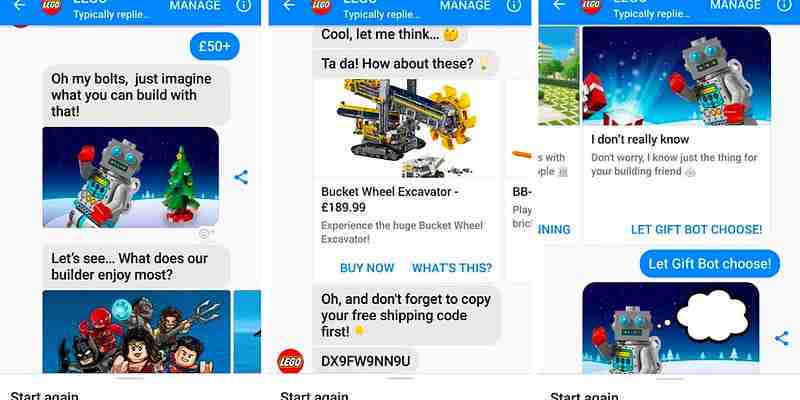
In this case, customers can get instant answers and recommendations anytime, get inspired and save more time. It can significantly benefit brands by saving more time and money and increasing customer loyalty and brand equity.
Challenges:
However, ChatGPT may not be able to handle more complex or nuanced customer inquiries.
Not to mention the issues of bias and ethics. A few months ago, a report showed that testing ChatGPT to write performance reviews for employees by using basic prompts and results was “wildly sexist and racist.” according to Fast Company. [4]
So existing ChatGPT-like Al systems are far from adequate.
To find out how to use ChatGPt for enterprise scenarios, please read:
ChatGPT for Enterprise Scenarios — How to cope with the data challenges3. Inventory Management
Benefits:
Inventory management is also a critical issue for E-Commerce retailers.
LLMs such as GPT-4 can be used to automate, optimize, and support manufacturing processes.
For example, a ChatGPT-powered AI bot can be integrated with a manufacturer’s inventory management system to monitor inventory levels in real-time and even generate easy-to-understand inventory reports.
It can be used to send automated inventory alerts, communicate with suppliers and coordinate deliveries to place new orders, confirm delivery dates and quantities, and provide real-time updates on production schedules and inventory levels.
Challenges:
However, ChatGPT cannot be used directly for inventory management. It knows a lot but still performs poorly in certain areas.
The better way is to train LLMs with your company’s exclusive data and keep adjusting and updating in order to develop your own professional virtual inventory manager.
4. Marketing
Benefits:
Last but not least E-Commerce scenario which is impacted by ChatGPT, is marketing.
Marketing is arguably the earliest and most aggressive use case for ChatGPT.
People use ChatGPT to generate product descriptions and marketing materials, as well as to create content for social media and personalized email campaigns, etc.
As ChatGPT continues to receive and process massive amounts of human-generated content, such as social media posts uploaded by media outlets, well-known brands, and influencers. ChatGPT will become more human-like.
So when you use it to create product promotion plans and copywriting, it will be able to generate more personalized content for a specific brand or user to meet the user’s needs.
In fact, there are already a number of AI-driven marketing companies that provide better service to clients’ marketing needs, such as Jasper.ai, Copy.ai and GrowthBar.
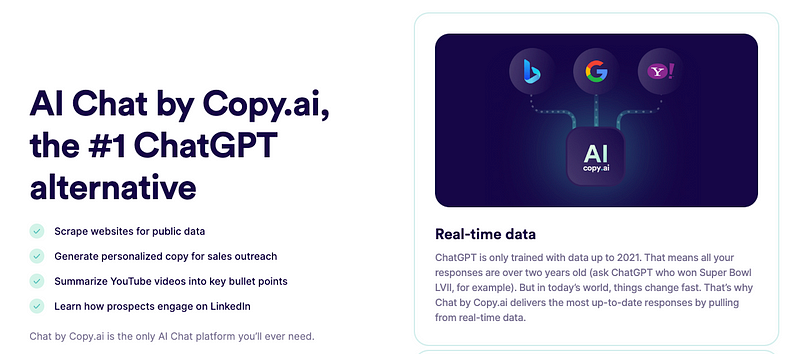
However, there is still criticism that such tools lack personality and voice, lack fact-checking, and struggle with niche topics.[5]
Challenges:
Therefore, we can argue that ChatGPT provides brief or detailed information about a product and its features, but it’s important to remember that the AI model still requires some curation to ensure the output is consistent with the brand’s tone and style.
In addition, if you are using ChatGPT to generate product descriptions and copywriting for your E-Commerce business, please always check the content for plagiarism.
5. How to use ChatGPT for your business?
As we know, people can not directly use ChatGPT/GPT-4 for business purposes because of its accuracy, bias and lack of professional knowledge of specific fields. It is crucial and urgent to build a data-centric approach to ChatGPT development of business scenarios.
maadaa.ai provides two main steps to solve such problems.
Step 1: High-quality training data and annotation.
Step 2: Scenario-based human feedback is the efficient approach to ensure domain data consistency.
For more information, please read:
ChatGPT for Enterprise Scenarios — How to cope with the data challenges
maadaa.ai, founded in 2015, is a comprehensive Al data services company that provides professional data services such as text, voice, image, and video to customers in the Al industry.
From Al data collection, processing and labeling, to high-quality Al datasets and dataset management, maadaa.ai helps customers to efficiently collect, process, and manage data, and conduct model training for rapid and cost-effective adoption of Al technologies.[6]
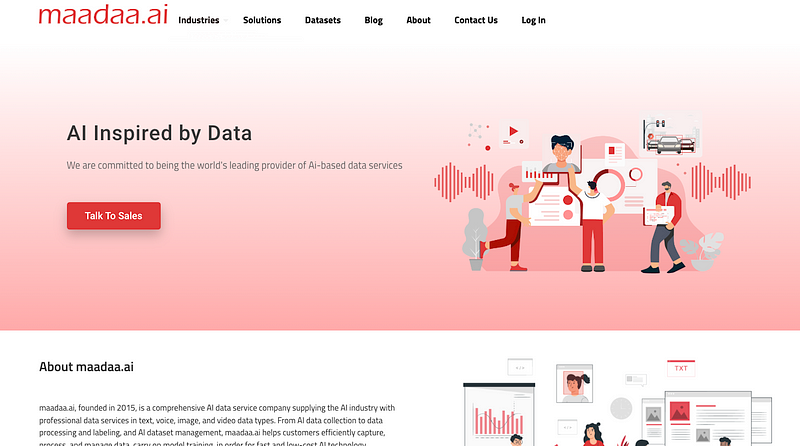
Reference List
[1] https://www.sellerapp.com/blog/chatgpt-for-ecommerce/
[2] https://techpacker.com/blog/design/chat-gpt-for-fashion-product-development/
[3] https://sumo.com/stories/ecommerce-chatbot-marketing
[4] https://www.fastcompany.com/90844066/chatgpt-write-performance: reviews-sexist-and-racist



